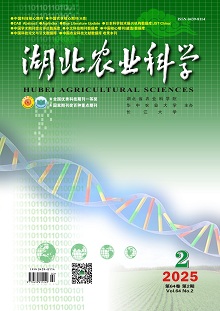作 者:
周荣华;饶犇;刘芳;陈伟;廖先清;胡蔻孜;杨自文
单 位:
湖北省生物农药工程研究中心;湖北省孝感高级中学
关键词:
多粘芽孢杆菌(Paenibacillus polymyxa);2,3-丁二醇脱氢酶;乙偶姻
摘 要:
将来自于多粘芽孢杆菌(Paenibacillus polymyxa)中的2,3-丁二醇脱氢酶基因pla C在大肠杆菌(Escherichia coli)BL21中进行了诱导表达,并对其酶学性质进行研究。结果表明,该基因的表达产物主要是生成内消旋型2,3-丁二醇,其氧化2,3-丁二醇的最适温度是50℃,最适pH为10,而还原乙偶姻的最适温度为60℃,最适pH为6。
译 名:
Cloning and Characterization of 2,3-butanediol Dehydrogenases from Paenibacillus polymyxa
作 者:
ZHOU Rong-hua;RAO Ben;LIU Fang;CHEN Wei;LIAO Xian-qing;HU Kou-zi;YANG Zi-wen;The Biological Pesticide of Hubei Province Engineering Research Center;Hubei Xiaogan Senior School;
关键词:
Paenibacillus polymyxa;;polymyxin;;2,3-butanediol dehydrogenase;;acetoin
摘 要:
The gene pla C which was in charge of converting acetoin to meso-2,3-butanediol was cloned from Paenibacillus polymyxa. It was expressed in Escherichia coli and subsequently purified. The enzyme activity showed that pla C mainly catalyze meso-2,3-butanediol formation from acetoin. The effects of temperature and pH on the activity of pla C were investigated by using both ketone reduction and diol oxidation reactions. Maximum activity for diol oxidation of pla C was observed at 50℃ and pH 10. The optimal temperature and pH for ketone reduction of pla C were 60 ℃ and pH 6.




